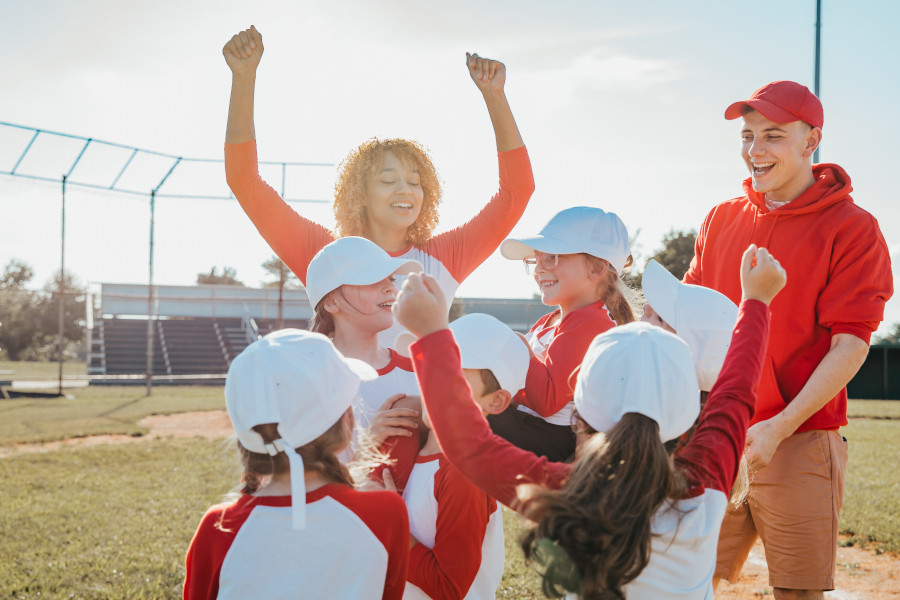
Increasingly, the world of youth sport has become a highly commercialized endeavor. The days of parents having their children play in the local volunteer youth sport league just for the fun of it are quickly disappearing and have become an almost quaint throwback to simpler times. Instead, more parents are making significant financial investments in hiring coaches who are skilled in developing the abilities of young athletes as they set their sights on securing a college scholarship or even an eventual lucrative offer to play professional sports for their child. The stakes are high and can lead to a strained parent-coach relationship. Unfortunately, the child or young athlete who is at the heart of this discord is the one who may suffer the most.
Conflict Between Parents and Coaches Can Hurt Athletic Development of Young Players
Parents and coaches often find themselves at odds with one another when it comes to coaching strategies and objectives, and this could be an impediment to facilitating the development of young athletes. This is especially true in the world of competitive youth sport where parents often make significant financial investments in the hopes their child will develop the skills necessary to receive a sport scholarship and admission to the college of their choice. There are several specific aspects of the parent-coach relationship that need improvement to ensure positive outcomes for young athletes.
Poor Communication Between Parents and Coaches Can Come at the Expense of the Young Athlete
One of these is communication. An open line of communication between parents and coaches is critical to avoiding misunderstandings that may irreparably harm or even terminate the parent-coach relationship. A recently published study co-authored by faculty from Mason’s School of Sport, Recreation, and Tourism Management profiled the responses of a select group of parents and coaches of young tennis players (ages 10-15) to questions about challenges they encountered in their interactions with one another. While both groups had hoped for consistent and meaningful communication, they instead experienced communication that was sporadic, infrequent, and not very informative. This was largely due to the time constraints placed on coaches, who are paid on an hourly basis and therefore must maximize the number of lessons they teach on any given day to increase their earnings. Time spent communicating with parents, which otherwise could be spent coaching young athletes, is lost income for these coaches.
Lack of Trust Can Compromise Coaching Strategies
Some coaches complain that parents who have no professional expertise feel justified in telling them how to do their jobs because they are paying the coaches for services. This sends a message that the parents do not see the coach as a professional. Still, coaches may be hesitant to challenge parents for fear of losing them as a client. Instead, they may simply choose to go along with the parents’ demands against their better professional judgment. This can have a negative impact on the development of young athletes—particularly those who have reached the age where they are focused on enhancing the technical skills needed to be competitive in their chosen sport and where an honest critique of their abilities becomes more important than ever.
Inadequate Communication and Mistrust Between Parents and Coaches Can Result in a Lack of Shared Goals
The absence of communication and trust between parents and coaches may lead to a lack of shared goals in young athletes’ development. This situation is exacerbated when a parent has an inflated view of their child’s athletic abilities which differs from a more realistic assessment coming from an experienced coach with years of professional training. These differences and conflicting goals can result in a training regime demanded by parents that is not appropriate for the skill or ability level of the young athlete in question.
Are There Actions that Could Improve the Parent-Coach Relationship Dynamic?
The co-authors of the study cited in this article recommend several steps that can be taken to improve the parent-coach relationship. These include:
- The incorporation of parent-coach relationship development training into current sport education programming.
- Paying coaches who work for a sport facility, such as a tennis club, an annual salary rather than compensating them hourly.
- Scheduling consultations with parents outside of peak training times and charging for those services.
- Providing parents with written summaries of the athlete’s performance and development through digital communications composed during off-peak hours.
Finally, the study co-authors recommend that the views and experiences of young athletes be included when conducting future research on the impact of parent-coach relationships.
To learn more about how the relationship between parents and coaches affects young children, read this article by School of Sport, Recreation, and Tourism Management faculty Chris Green. Mason's School of Sport, Recreation, and Tourism Management offers programs in sport management and coaching. Please visit our website to learn more.
